Many people think that diving courses are only for young, fit and excellent swimmers. The truth is different: anyone who is healthy, can swim (excellent swimming skills are not required), likes water and would like to stay under it can learn to dive.
How to start scuba diving and is diving difficult?
With the development of modern diving equipment, this form of activity, because scuba diving is not a sport, has become easy to master. Diving is easy for many people, although it requires discipline and common sense.
By following the rules that every diving adept learns during the first, basic scuba diving course - the probability of an emergency situation occurring is negligible.
There are many ways to start scuba diving:
Snorkeling
That is, viewing what is underwater from its surface. Snorkeling has gained popularity with travel to exotic corners of the world (Egypt) - the warm and transparent sea waters of the Red Sea are conducive to swimming with a mask, snorkel and fins. Some people spontaneously try freediving. When the stay under water seems too short, the thought of scuba diving comes to mind. The initial exploration of the undersea world from the surface is no longer enough and we want to explore the underwater world longer.
Diving for beginners, the so-called INTRO or DSD (Discover Scuba Diving)
In many popular seaside resorts, there is an entire industry aimed at people without diving certificates who would like to see coral reefs (Red Sea, Egypt), immerse themselves in warm, clear water (Turkey, Canary Islands, Greece) and take away memories of diving and underwater photos. For many people, such a one-time INTRO dive is enough, but there will be those (and there are not many of them) who will want to dive again, but more consciously and independently. It is important to consciously choose a diving center and an experienced diving instructor - and not rely on chance or be tempted by a low price, because a poorly done Intro (for example, too quick a dive without equalizing the pressure) may unnecessarily discourage scuba diving forever.
Scuba diving course
Did the path to diving lead through snorkeling, diving for beginners, the so-called Intro or just someone immediately decided to become a diver, the end is always the same: to start diving on your own (and this does not mean alone) you need to sign up and complete a diving course.
You can take a scuba diving course in your place of residence in Europe or any other place - the advantage is that we can learn without having to take time off. The disadvantage is a short diving season in open waters. It is difficult to say whether the views in lakes and quarries are attractive - there will certainly be people who like poorer transparency, green tint of water and low temperature.
You can try to take confined water training and theory classes in your place of residence and complete the open water diving course in a warmer and more exotic place - for example in Egypt, where the diving season lasts all year round and the journey takes from Europe only few hours by plane. The so-called Referral is valid for one year from the date of the last lesson - please keep this in mind when planning to complete your diving course elsewhere.
You can also immediately plan a scuba diving course in the warm waters of the Red Sea, where during the course you can admire the closest coral reefs. The PADI diving course in Hurghada is intensive, but just a week's vacation will make your diving dream come true.
If you are thinking about diving - sign up for INTRO diving for beginners or immediately take a scuba diving course, where you will learn how to stay and move safely under water. Don't be afraid - diving is easy - children from the age of 10 can also participate in the diving course.
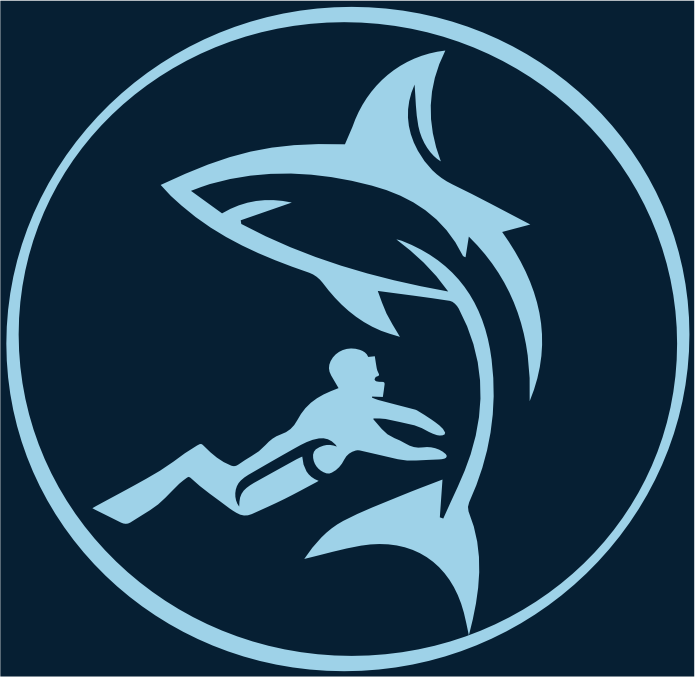
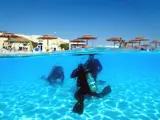

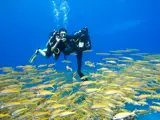
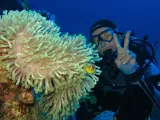
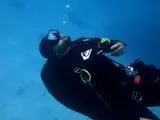
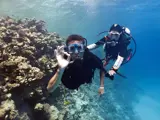
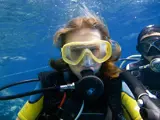
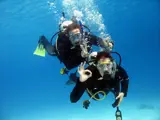


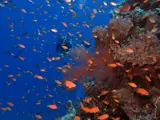
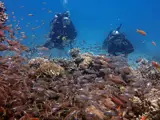
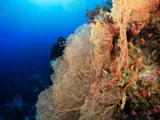
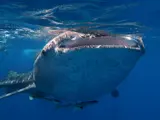

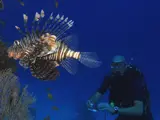
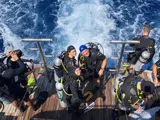



About the author
Pavla